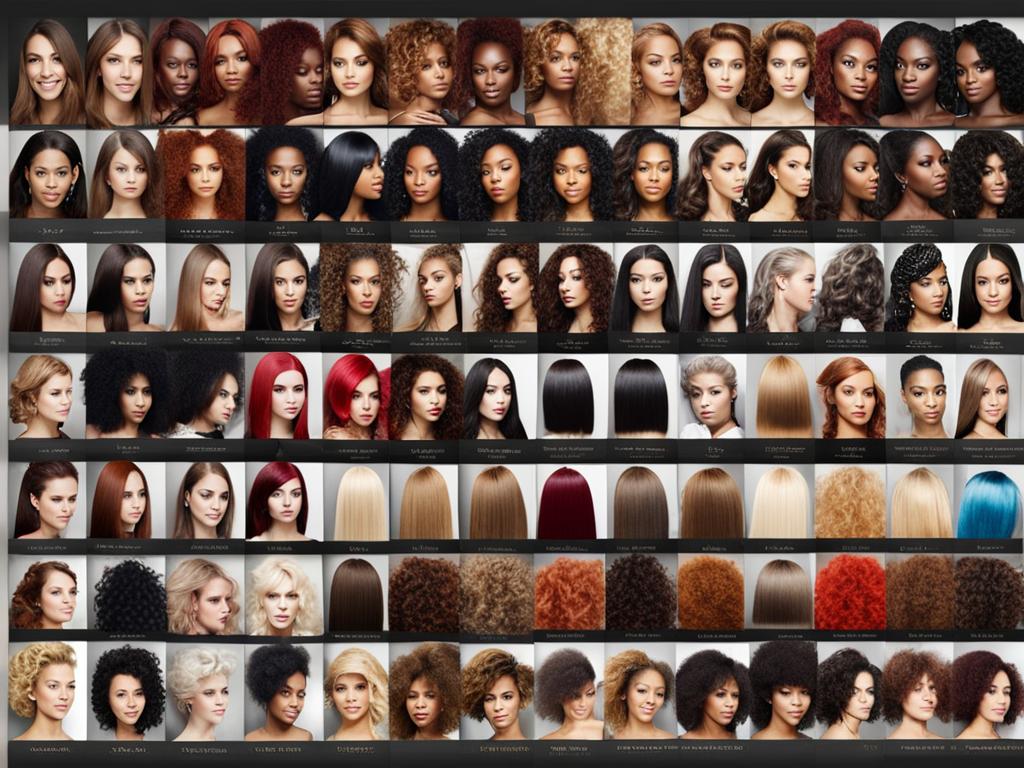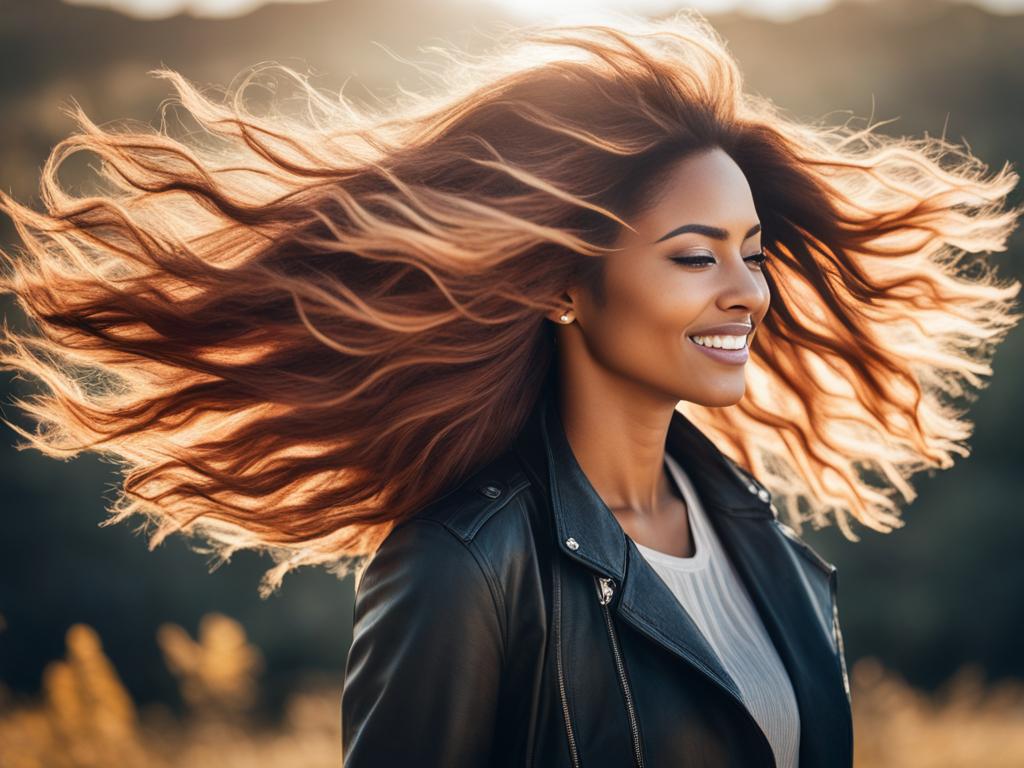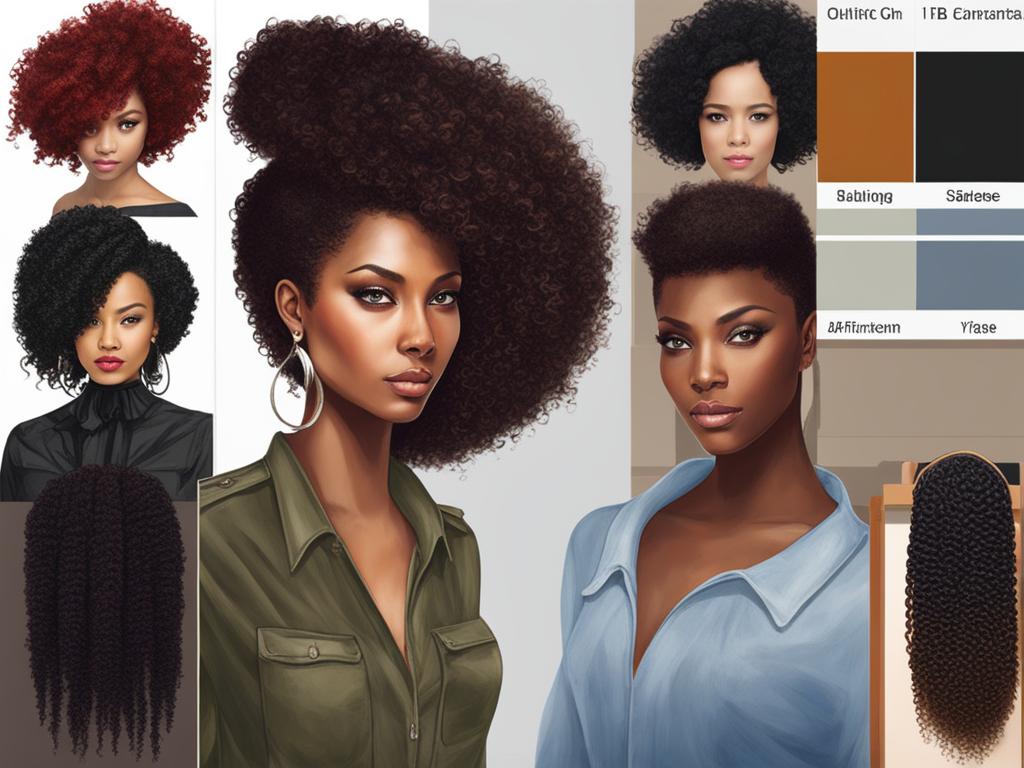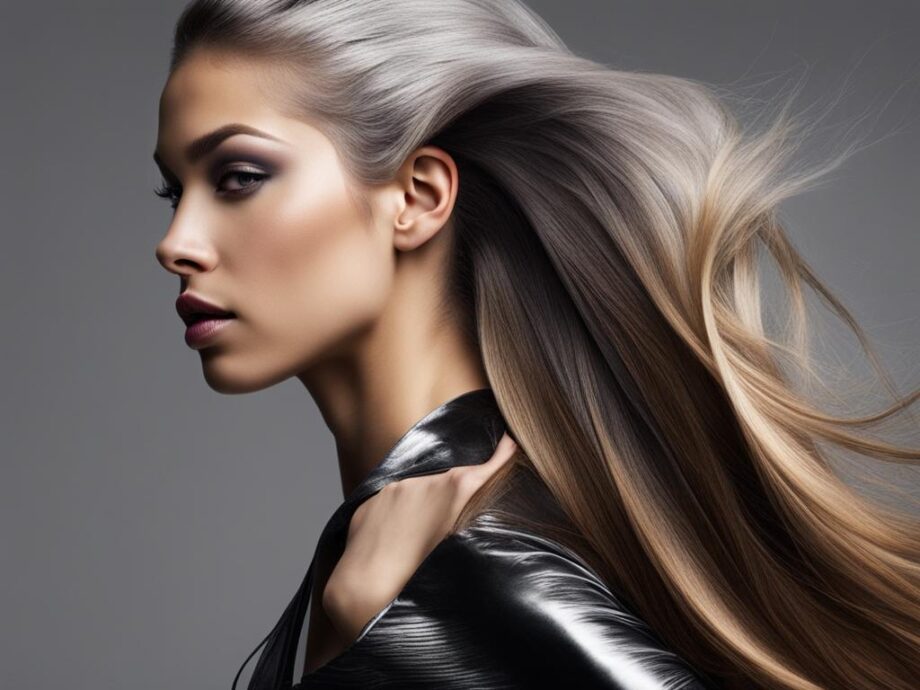Choosing the right hair color can be daunting. With so many options, it’s hard to determine which choice is right for you. When it comes to deciding between 1B hair color and natural hair, understanding the differences is essential.
1B hair color is a common shade of black hair dye that has a slightly blue undertone. On the other hand, natural hair is the hair color you were born with. It’s important to recognize the traits and characteristics that set these two options apart in order to make an informed decision.
Key Takeaways
- There are differences between 1B hair color and natural hair that impact your overall look and hair health.
- Understanding the pros and cons of each option can help you make an informed decision.
- Consider personal preferences, lifestyle, and desired maintenance level when choosing a hair color.
- Embracing natural hair color can offer benefits such as versatility and ease of maintenance.
- Chemical damage from dyeing can impact hair health, making it important to consider the impact of hair color choices on hair health.
Understanding 1B Hair Color
If you’re considering dyeing your hair, you may have heard of 1B hair color. Unlike natural hair color, 1B is a specific shade of black with underlying tones of cool blue. This unique hue offers a wide range of possibilities for those looking to switch up their hairstyle.
Compared to natural hair color, 1B can be more forgiving when it comes to hiding grays and can make hair look fuller due to the added depth and dimension. However, it’s worth noting that dyeing your hair, regardless of the color, can potentially damage it.
If you’re looking for a low-maintenance option, 1B hair color may not be the way to go. You’ll likely need to touch up your roots every four to six weeks to maintain the color’s vibrancy. Additionally, depending on the quality of the dye and how often you wash your hair, the color may fade over time.
Ultimately, the decision to choose 1B hair color over natural hair color is a personal one. Some individuals opt for 1B to experiment with a new look, while others may prefer to embrace their natural hair color for various reasons. Below is a side-by-side comparison of 1B hair color and natural hair color to help you decide which is right for you.
| 1B Hair Color | Natural Hair Color |
|---|---|
| Offers a unique shade of black with cool blue undertones | Varies depending on ethnicity, genetics, and age |
| Can make hair look fuller and more vibrant | May require more maintenance to achieve desired look |
| May hide grays more easily | Graying is a natural part of aging that may be embraced or covered up with dye |
As you can see, both options offer different advantages and disadvantages. Ultimately, the choice comes down to your individual preferences and goals.

Embracing Natural Hair Color
Unlike 1B hair color, natural hair color offers many unique benefits that should not be overlooked. Embracing your natural hair color can provide versatility and ease of maintenance that 1B hair color cannot match. Here are some of the key advantages that come with embracing your natural hair color:
- Low Maintenance: Natural hair color requires less maintenance compared to 1B hair color, which needs frequent touch-ups to maintain its color.
- Versatility: Natural hair color comes in different shades, allowing you to choose the perfect hue that suits your personality and style. You can easily switch between shades without worrying about damage to your hair, unlike with 1B hair color, which is a more consistent hue.
- Healthy Hair: By avoiding harsh chemicals that are common in coloring treatments, you can maintain healthy hair with natural hues. This can lead to less breakage and strengthening of the hair structure.
By embracing natural hair color, you can enjoy the advantages of having organic hair color that complements your skin tone and overall appearance. In addition, natural hair color wins out over 1B hair color in terms of health benefits. This is because many 1B hair color treatments involve harsh chemicals that can damage your hair over time.

1B Hair Color vs. Natural Hair Color
| Criteria | 1B Hair Color | Natural Hair Color |
|---|---|---|
| Shade Consistency | Uniform black color | Different shades and tones |
| Maintenance Level | Requires frequent touch-ups | Low maintenance |
| Versatility | Limited to one hue and shade | Multiple hues and shades to choose from |
| Health | Chemicals can be harmful to hair health | Chemical-free, leading to healthier hair |
When comparing 1B hair color and natural hair color, natural hair color either wins or is tied on every criteria. Additionally, the versatility of natural hair color makes it the better option as it caters to more individuals’ preferences. Choosing the best type of hair color comes down to personal preference, but if hair health and versatility are your priorities, you should consider embracing your natural hair color.
Key Distinctions Between 1B Hair Color and Natural Hair
When it comes to hair color, 1B and natural hair shades differ in several ways. The most apparent difference is the color itself. 1B hair color is a darker, almost black shade, while natural hair color can range from blonde to brunette to red.
Another critical difference is texture. 1B hair color may have a coarser texture, while natural hair texture varies depending on the individual. This texture difference can impact the style and overall look of your hair.

Shade variation and texture are not the only factors that differentiate 1B hair color and natural hair. The process of achieving 1B hair color involves dyeing and potentially damaging your hair with chemicals. Natural hair color, on the other hand, simply embraces the hair’s original shade, enhancing its inherent beauty without damaging it with chemicals.
It’s also worth considering maintenance requirements. While 1B hair color may require touch-ups every few weeks to maintain the dark shade, natural hair color doesn’t require any specific maintenance, making it a lower maintenance option.
By understanding these key distinctions between 1B hair color and natural hair, you can make an informed decision about which option best suits your style and hair health needs.
Considering Hair Health
Our hair is often subject to a lot of damage from various environmental factors, chemicals, and styling tools. One aspect that many people overlook when it comes to hair health is the impact of hair color. Different hair colors can have varying effects on hair health, and it’s crucial to understand these before making a decision about your hair color.
When it comes to comparing 1B hair color and natural hair, embracing your natural hair color has several advantages. One of the primary benefits of natural hair color is that it is less damaging to your hair. Unlike chemical hair dyes, natural hair color doesn’t contain any harsh chemicals that can strip your hair of its natural oils and leave it dry and brittle.
Furthermore, natural hair color requires less maintenance and has fewer restrictions. You do not need to touch up roots every few weeks, and you can experiment with styles that complement your natural hair texture without worrying about damage caused by heat or chemical treatments.
When you opt for a chemical hair dye like 1B hair color, you risk causing harm to your hair. These dyes contain harsh chemicals that can lead to breakage, dryness, and even hair loss. The frequent touch-ups required to maintain the color can also exacerbate this damage.
Choosing natural hair color over 1B hair color can help you maintain healthy hair and avoid the potential risks of chemical dyes. Additionally, embracing your natural hair color makes it easier to experiment with different hairstyles and textures, giving you more freedom with your hair styling.
Choosing the Right Option for You
Whether you’re considering coloring your hair for the first time or looking to switch up your current hair color, choosing between 1B hair color and natural hair can be challenging. To make an informed decision, it’s essential to evaluate the benefits of each option based on your personal preferences, lifestyle, and desired maintenance level.
If you prefer low-maintenance hair with a subtle yet noticeable change, 1B hair color might be right for you. Opting for 1B hair color can add depth and dimension to your hair without requiring frequent touch-ups.
On the other hand, if you enjoy versatility and embrace your natural hair color, there are countless benefits to keeping it natural. Benefits of natural hair color include easier maintenance, lower likelihood of damage and breakage, and the ability to showcase your unique personality and style.
Ultimately, the best choice between 1B hair color and natural hair depends on what aligns with your personal preferences and lifestyle. Take some time to evaluate the benefits of each option, and consider consulting with a trusted hairstylist for additional guidance. By taking a thoughtful and informed approach, you can confidently make a choice that enhances your natural beauty and complements your unique style.
Conclusion
When considering 1B hair color vs natural hair, understanding the differences between the two is crucial. Both options offer unique advantages that can enhance your overall look, but it’s essential to weigh your personal preferences, lifestyle, and desired maintenance level when making a choice.
Opting for 1B hair color can provide versatility, allowing you to experiment with different shades without changing your overall look drastically. However, it’s essential to be aware of the potential disadvantages, such as chemical damage and frequent touch-ups.
Alternatively, embracing your natural hair color provides a range of benefits, including ease of maintenance and versatility. By opting for natural hair color, you can showcase your unique style while maintaining the health and quality of your hair.
Ultimately, whether you choose 1B hair color or natural hair color, the decision should align with your personal style and preferences. By weighing the advantages and disadvantages of each option and considering the impact on hair health, you can make an informed choice that enhances your overall look and highlights your unique features.
FAQ
What is the difference between 1B hair color and natural hair?
1B hair color refers to a dark brown shade with a slight cool undertone, while natural hair color refers to the shade that naturally occurs on your head without any dye or color treatments. The main difference lies in the fact that 1B hair color is achieved through artificial means, while natural hair color is present from birth.
What are the advantages of choosing 1B hair color?
Opting for 1B hair color offers several benefits. It can give your hair a more uniform and polished look, as well as add depth and dimension to your overall appearance. Additionally, 1B hair color allows for more versatility in styling options and enables you to experiment with different looks and trends.
What are the benefits of embracing natural hair color?
Embracing your natural hair color offers numerous advantages. Natural hair color requires less maintenance and reduces the risk of damage associated with chemical treatments. It allows your hair to grow and evolve in its natural state, showcasing its unique texture and tone. Furthermore, natural hair color promotes self-acceptance and encourages embracing your authentic self.
What are the key distinctions between 1B hair color and natural hair?
The distinctions between 1B hair color and natural hair primarily lie in the shade and texture. While 1B hair color features a specific dark brown hue, natural hair color can vary from person to person, ranging from blondes to brunettes to redheads. Additionally, the texture of natural hair differs depending on genetics, whereas 1B hair color is achieved through dyeing processes.
How does choosing between 1B hair color and natural hair affect hair health?
Opting for natural hair color generally promotes better hair health as there is no risk of chemical damage associated with dyeing. Chemical treatments can potentially weaken the hair strands and lead to dryness or breakage. Embracing your natural hair color allows for a more minimalistic and healthier hair care routine.
How do I choose the right option for me?
To choose between 1B hair color and natural hair, consider factors such as personal style, maintenance preferences, and lifestyle. If you enjoy experimenting with different hair colors and styles, 1B hair color might be a suitable choice. However, if you prefer a low-maintenance routine or value the natural beauty of your hair, embracing your natural hair color would be a better option.
